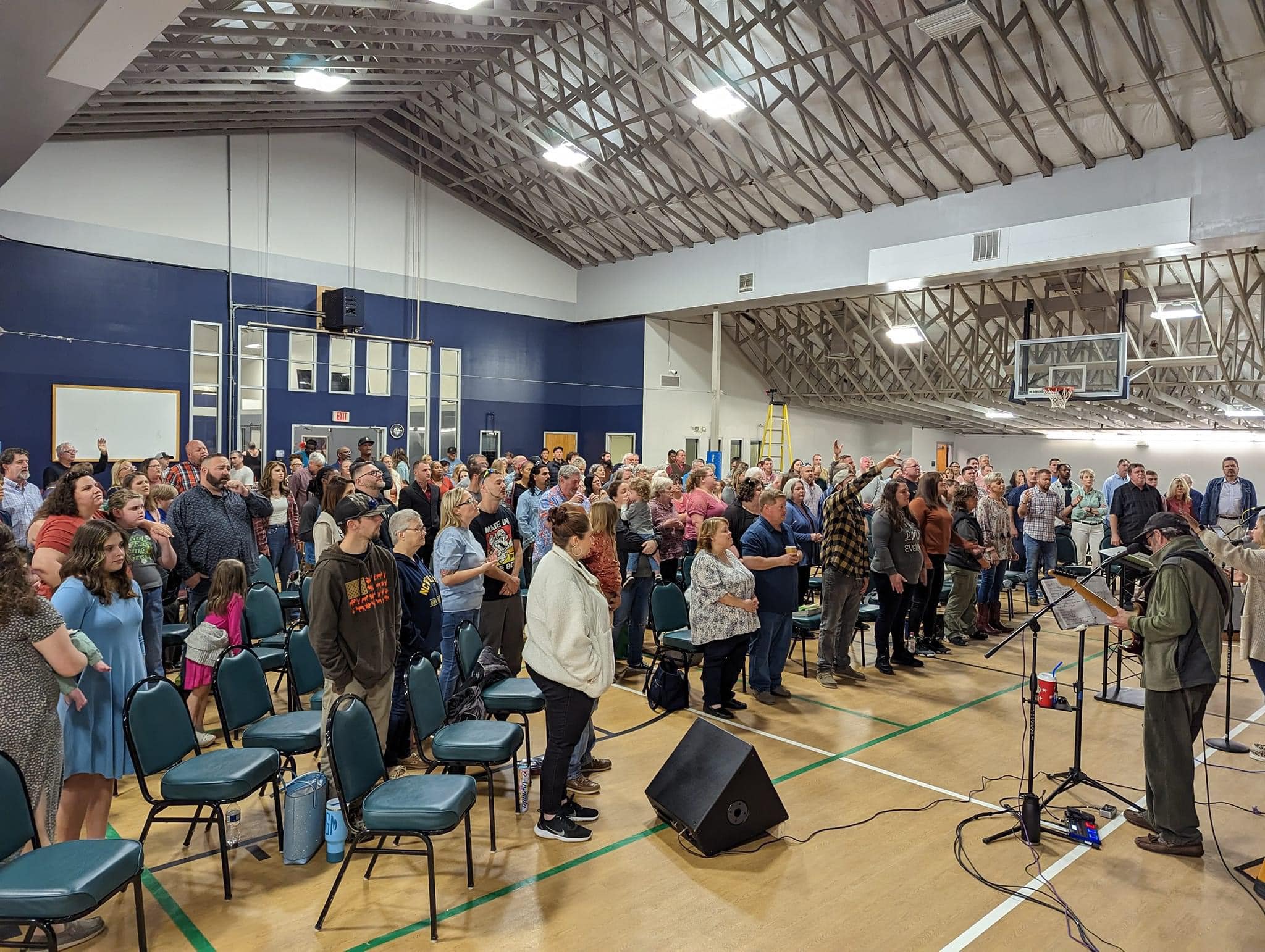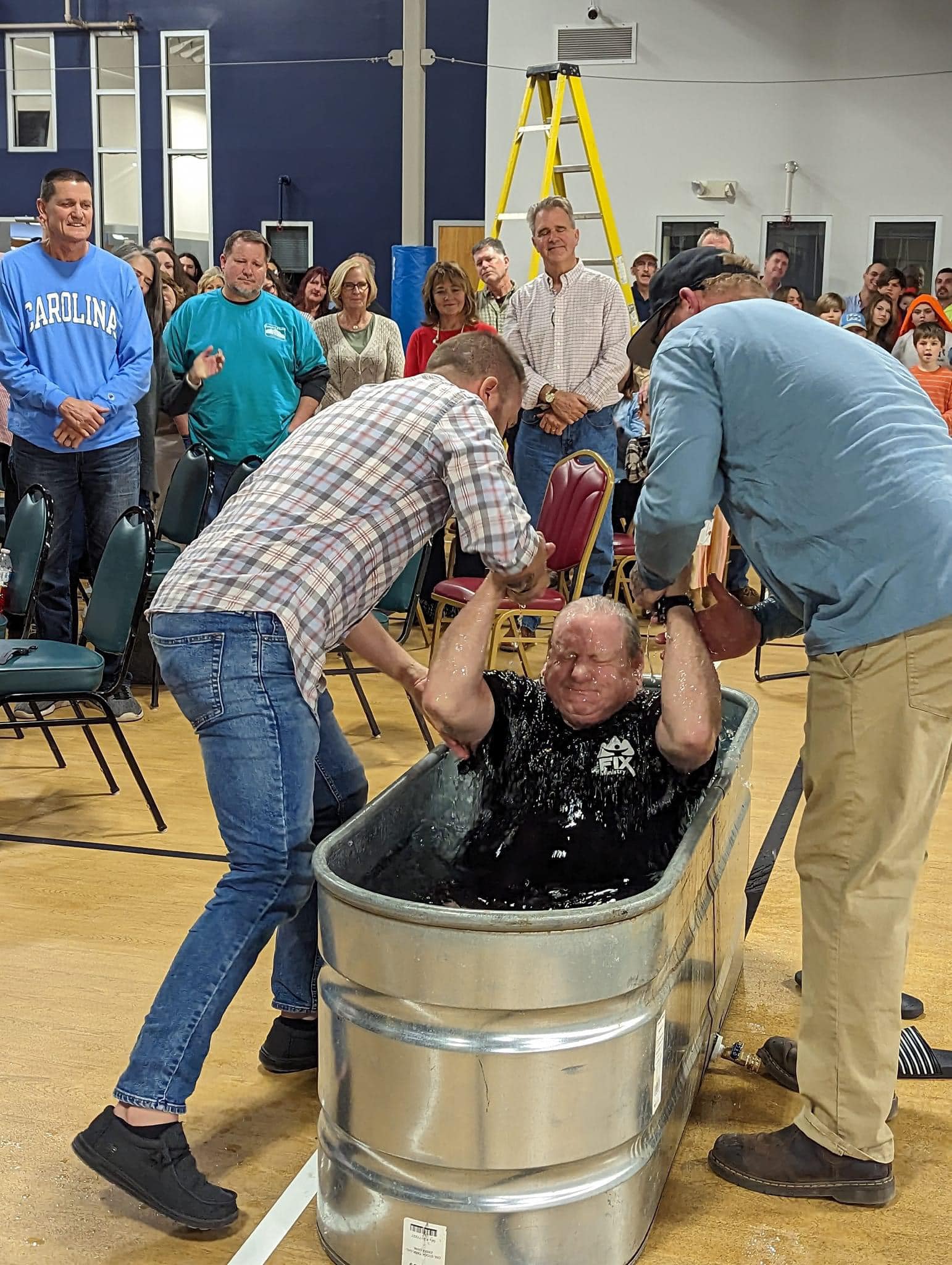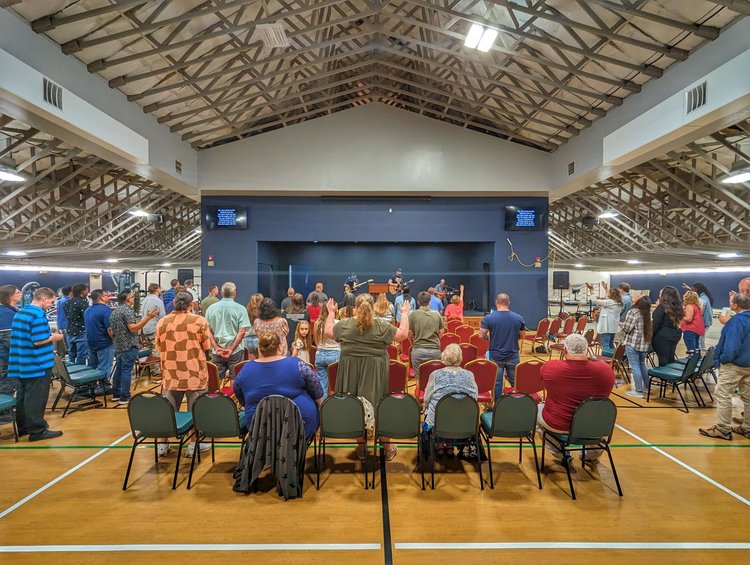Video by SBC of Virginia
The Fix Chapel doesn’t look like a typical congregation. For one thing, the church meets on Saturday nights. It’s a time of week that proves to be especially challenging for many of the recovering addicts in the congregation.
For another, they gather to give out food, meet practical needs and share the gospel with the homeless in their community of Tappahannock, Va. nearly every Saturday afternoon before the evening service.
The streets are not foreign to Pastor Fred Weymouth and his wife Casey. Through a history of drug and alcohol abuse, both Fred and Casey found themselves facing homelessness – and hopelessness – before they found Christ.
“My parents were really young, like 16 and 17, when they had me and my brother,” says Casey, “They were drinking on the weekends, smoking pot, and that was just the lifestyle that we grew up in.” By 13, Casey was struggling with an eating disorder, and by 18, she knew she had a serious problem with drugs and alcohol.

While she was able to manage her alcoholism enough to have a successful career with the Army and even complete college, her addictions eventually caused her life to spiral.
“I was doing very well, and I lost everything,” she recalls. “I lost my car. I lost my house. I lost my job. I lost my family.”
One night after spending the last of her money on drugs instead of a hotel room, Casey finally turned to God.
“I asked Him, ‘either let me die or change me.’” The next morning Casey quit her bartending job. She moved back into her childhood bedroom to live with her mom, who had become a believer, and started being discipled by the women in her church.
In many ways, Fred’s story is similar – but instead of coming to Christ on the streets, he came to Christ in jail. As early as middle school, Fred remembers dabbling with alcohol.
“It progressively got worse,” he says, “to a point where I graduated high school with a heroin addiction.”
While Fred experienced stints of success in his professional life as an insurance salesman and in the Coast Guard, his heroin addiction eventually cost him everything he had.
“I tried every program you could try: psychologists, counselors, 60-day-programs, 90-day-programs… I tried everything conceivably known to man to stop using heroin and couldn’t.”
It was only when a pastor came to preach in the prison where Fred was incarcerated that he responded to the gospel, got a hold of a Bible and quit drugs for good.
Because of their life-changing encounters with Christ, both Fred and Casey feel called to minister to people who are also searching for a “fix” from their addictions.
“If you don’t have Jesus, it doesn’t matter how many steps you take,” Casey says, “Jesus is the first step.”
From this foundation, The Fix Ministry, a gospel-centered program that helps people who are lost in addictions, was built in 2018. As happens many times when a community is being reached, and disciples are made, a church naturally began to form.
Today, more than 150 people – mostly program students, their families and people from the community who are struggling with addiction— attend The Fix Chapel. The church has celebrated 87 baptisms just in the last year.

“We want to reach the lost and broken, and we specifically are reaching a subculture of people in addiction,” says Casey. “We want to teach them about a new life in Christ, and then we want to send them back out to the harvest.”
The different aspects of the Weymouths’ ministry have put them in contact with nearly 1,000 people in the last seven years.
“Being able to partner with a network of churches that I can pick up the phone and call and say that I have a family or a man that’s coming to that area and I’m going to send them to you is so vitally important,” Fred says.
The accountability and support of other pastors, as well as doctrinal alignment, are two more reasons Fred is grateful to be a part of Send Network.
The Weymouths are praying that they can multiply their ministry and plant it somewhere else in the near future. Southwestern Virginia, which borders two states that are ranked to have some of the highest drug overdose death rates in the world, is just one place they have a heart to reach.
“Our connection with Send Network has given us an opportunity to be able to legitimately do that. It’s not just a vision. Now, there are steps that we can take to make this happen,” says Casey.
Published January 18, 2024
